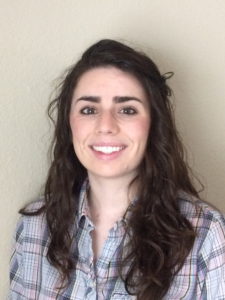By Leah Wight
Photo via Flickr
My first year in college was not the stereotypical first-year experience. I was studying at UC, Davis while my dad was undergoing cancer treatments for a tumor so large it was impossible to operate on.
My reaction to his diagnosis and later his death was typical of the way many Americans deal with death—I avoided it altogether.
The news came in the summer of 2010. I had just graduated high school and was preparing to move away from home. My parents sat my sister and me down to tell us that the doctors found something. My dad had decided to investigate a cough that had been plaguing him for two years—a cough we assumed was connected to the poor air quality in Merced. But after going from specialist to specialist, he found himself at the oncologist.
Dad was always such a healthy guy – many would call him a health nut – so while we were shocked we were also confident that he would recover.
For months I would cling to this hope refusing to envision any other outcome other than my dad’s survival. I clung to it while my dad decided to take a naturalistic approach and spend time at a clinic in Mexico. I continued to hope when he opted for a pill form of chemo. But when his health began deteriorating so rapidly that I could barely look at him without crying, I realized there was a possibility he would not make it.
After he passed I found myself drowning in grief. I thought I understood the basics of the grieving process after taking Psych 1: I just had to get through steps 1, 2, 3, 4, and 5 and I would be golden, right?
I also thought that the minimal anticipatory grief I had allowed myself to experience, when he was battling cancer, was sufficient. ‘I should be done. These tears are helping no one,’ I thought. But I simply wasn’t “done” and squelching my tears only allowed the depression to surface in more sinister ways. I couldn’t fall asleep, I would spend days eating only sweets, and, most damaging of all, I felt utterly alone.
After months of my mother urging me to take advantage of UC Davis’s free mental health clinic, I did. I saw several psychologists and decided that participating in a support group might be the most beneficial step towards coming to terms with his death. During this time of healing, I learned to channel my pain into more helpful avenues—journaling, running, and painting. I learned how to cope. To this day I continue to struggle with bouts of sadness, but I am no longer drowning.
My younger sister’s healing process began much later. She was 13 and living in Merced at the time of his death. During his decline my mom arranged for her to see a psychologist, but unlike me she did not have a support group of similarly- aged and -affected peers. For months the psychologist seemed to only treat the symptoms of her grief—primarily helping her with anxiety. She spent very little time with the psychologist after our dad’s death.
Children who experience the death of a loved one should have access to affordable services that get to the root of the issue—death itself. Many places supporting children through the grieving process are cropping up throughout the United States. The Sharing Place, one of the first of its kind, was opened in 1993 and serves the Salt Lake City area in Utah. To remain accessible to families from different financial backgrounds they ask participants to donate what they can.
The famed psychologist Sigmund Freud once said that children have a difficult time even conceiving of such a loss, a premise that has led society to try to “protect” young people from the realties of death. The truth is that children, especially younger children simply have a different grieving process.
Merced has yet to offer any “Sharing Place,” but we desperately need one. The median age in Merced is 28, and the trend is only getting younger. It is inevitable that some of our youth will experience loss in childhood. Their recovery process is in part dependent on the resources available to them in our community.

Leah Wight, 24, is a recent graduate from Sacramento State University who works in schools for children in Special Education. She is interested in continuing her education with a Master’s Degree in Education to provide for her sassy cat, Lola. She is excited to be a part of We’Ced as a contributor and mentor.
 Translate
Translate
